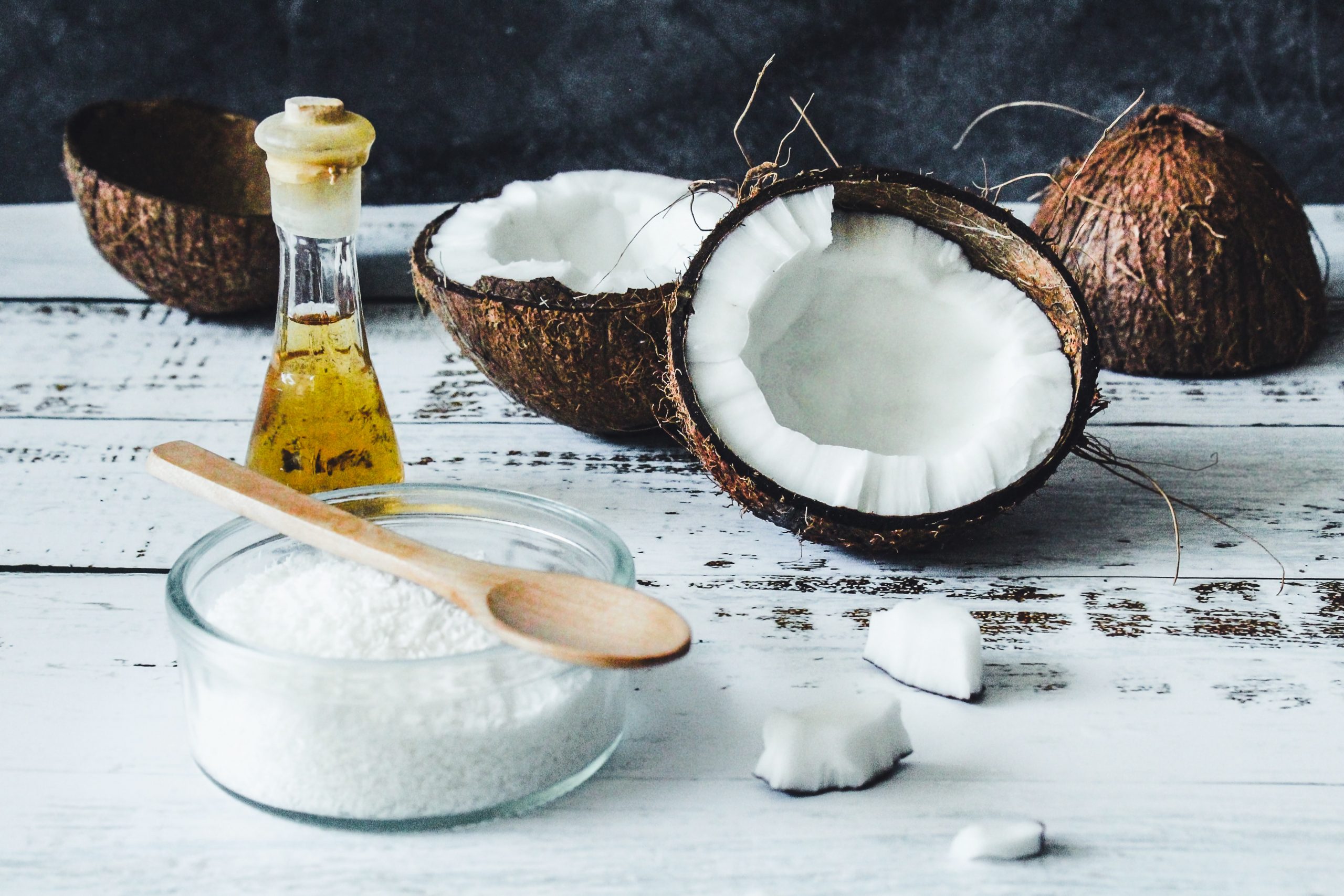Coconut Oil

Saturated fats
Before I go on to explain all about coconut oil, I want to give you some information about the Saturated Fats that industry has made us fear.
They have many benefits, among which are: nourishing the brain, helping the assimilation of calcium and cooperating with macrophages to fight pathogens.
Let’s be clear about one thing: they do NOT cause cardiovascular disease, they help lower triglycerides, insulin and glucose and increase HDL.
Types of saturated fats:
- Short-chain fatty acids: such as butyric acid (from butter), which helps the intestinal flora.
- Medium-chain fatty acids: such as lauric acid (from coconut), which has an antibacterial effect.
- Long-chain fatty acids: such as stearic acid (cocoa butter, shea butter), which has a satiating effect.
Coconut Oil
One tablespoon of coconut oil (14g) provides 12g of saturated fat.
It is made up of:
- Lauric Acid, which is transformed into Monolaurin (which is what provides the bactericidal effect).
- And 15% MCT (medium chain triglycerides), which is divided into Caprylic Acid (C8) and Capric Acid (C10).
Benefits:
- Its large amounts of Lauric Acid give it antimicrobial, antifungal and antiviral properties. It has a high anti-inflammatory power.
- Its consumption in logical portions does not negatively affect blood cholesterol levels, as long as the organism is hormonally balanced and carbohydrates are not abused together.
- People on very low-carbohydrate diets often consume it in large quantities without any problem.
- It is recommended as a replacement for oil spray or for cooking at high temperatures.
MCT: Medium Chain Triglycerides
MCTs, which are derived from coconut oil, are easily digested, absorbed and metabolised by the liver, providing immediate energy. They do not pass through the lymphatic system, so they are quickly transformed into ketones when you are in a state of fasting or ketosis. They are even able to cross the blood-brain barrier and reach the brain.
Many health professionals recommend it for certain pathologies such as autism, neuro-degenerative diseases, etc.
Functions: increases mitochondrial biogenesis by increasing PGC-1α.
This PGC-1α protein may also be involved in blood pressure control, regulation of cellular cholesterol homeostasis and the development of obesity.
How and how much to use?
It can be added to coffee, tea, mate in the morning or in meals, e.g. salads, I make my own homemade mayonnaise with this oil 🙂
Dosage: between 5- 10ml/day. It is recommended to start with a teaspoon of 5ml and then increase if you wish.
